Lewin Moshe - Lenins Last Struggle
Here you can read online Lewin Moshe - Lenins Last Struggle full text of the book (entire story) in english for free. Download pdf and epub, get meaning, cover and reviews about this ebook. City: Ann Arbor;Soviet Union, year: 2005, publisher: University of Michigan Press, genre: Politics. Description of the work, (preface) as well as reviews are available. Best literature library LitArk.com created for fans of good reading and offers a wide selection of genres:
Romance novel
Science fiction
Adventure
Detective
Science
History
Home and family
Prose
Art
Politics
Computer
Non-fiction
Religion
Business
Children
Humor
Choose a favorite category and find really read worthwhile books. Enjoy immersion in the world of imagination, feel the emotions of the characters or learn something new for yourself, make an fascinating discovery.

- Book:Lenins Last Struggle
- Author:
- Publisher:University of Michigan Press
- Genre:
- Year:2005
- City:Ann Arbor;Soviet Union
- Rating:4 / 5
- Favourites:Add to favourites
- Your mark:
- 80
- 1
- 2
- 3
- 4
- 5
Lenins Last Struggle: summary, description and annotation
We offer to read an annotation, description, summary or preface (depends on what the author of the book "Lenins Last Struggle" wrote himself). If you haven't found the necessary information about the book — write in the comments, we will try to find it.
Lenins Last Struggle — read online for free the complete book (whole text) full work
Below is the text of the book, divided by pages. System saving the place of the last page read, allows you to conveniently read the book "Lenins Last Struggle" online for free, without having to search again every time where you left off. Put a bookmark, and you can go to the page where you finished reading at any time.
Font size:
Interval:
Bookmark:

LENINS
LAST
STRUGGLE
A NN A RBOR P APERBACKS FOR THE S TUDY OF
R USSIAN AND S OVIET H ISTORY AND P OLITICS
Ronald Grigor Suny, Series Editor
The series publishes classic and out-of-print works
in Russian history and politics, presenting them with
new prefaces in which prominent experts assess the books
continued importance to the field and make their value clear
to a new generation of students and scholars. The works to be
included will span the entire period of modern Russian and
Soviet history and demonstrate the variety of approaches
and interpretations that have long made the study of
Russias past an integral part of our
understanding of ourselves.
Karamzins Memoir on Ancient and Modern Russia
Richard Pipes
Lenins Last Struggle
Moshe Lewin
LAST
STRUGGLE
MOSHE LEWIN
TRANSLATED BY
A. M. SHERIDAN SMITH
With a New Introduction

THE UNIVERSITY OF MICHIGAN PRESS
Ann Arbor
Copyright by the University of Michigan 2005
Translation of Le dernier combat de Lnine. First published
in 1968 by Random House under the Pantheon Books imprint,
and reprinted by Monthly Review Press, 1978.
All rights reserved
Published in the United States of America by
The University of Michigan Press
Manufactured in the United States of America
 Printed on acid-free paper
Printed on acid-free paper
2008 2007 2006 2005 4 3 2 1
No part of this publication may be reproduced, stored in a retrieval system,
or transmitted in any form or by any means, electronic, mechanical,
or otherwise, without the written permission of the publisher.
A CIP catalog record for this book is available from the British Library.
Library of Congress Cataloging-in-Publication Data
Lewin, Moshe, 1921
[Dernier combat de Lnine. English]
Lenins last struggle / Mosh Lewin ; translated by A.M. Sheridan Smith, with a new introduction.
p. cm.
Includes bibliographical references and index.
ISBN 0-472-03052-3 (pbk. : alk. paper)
1. Soviet UnionPolitics and government19171936. 2. Lenin, Vladimir
Ilich, 18701924. I. Title.
DK266.5.L4513 2005
947.0841092dc22 | 2004065834 |
ISBN13 978-0-472-03052-1 (paper)
ISBN13 978-0-472-02667-8 (electronic)
The worst thing that can befall the leader of an extreme party is to be compelled to take over a government in an epoch when the movement is not yet ripe for the domination of the class which he represents, and for the realization of the measures which that domination implies.... Thus he necessarily finds himself in an insolvable dilemma. What he can do contradicts all his previous actions, principles and immediate interests of his party, and what he ought to do cannot be done.... Whoever is put into this awkward position is irrevocably doomed.
F. E NGELS , The Peasant War in Germany
Those Communists are doomed who imagine that it is possible to finish such an epoch-making undertaking as completing the foundations of socialist economy (particularly in a small-peasant country) without making mistakes, without retreats, without numerous alterations to what is unfinished or wrongly done. Communists who have no illusions, who do not give way to despondency, and who preserve their strength and flexibility to begin from the beginning over and over again in approaching an extremely difficult task, are not doomed (and in all probability will not perish).
V. I. L ENIN , Notes of a Publicist
A considerable number of left-wing dictatorships have appeared on the international political scene since World War II, the only precedent for states of this type being the Soviet Union, which is now celebrating its fiftieth anniversary. These fifty years of socialist experience could no doubt be very useful to the new states if they took the trouble to acquire a thorough knowledge of them and to reflect on the vicissitudes of the first proletarian dictatorship. Thus the failure of the agroindustrial combines created in the USSR in 19291930 foreshadowed that of the communes of the Peoples China, and Nikita Khrushchev was a victim of the same megalomania when he tried to launch his agrogoroda in 1950. However, apart from a small number of Soviet writers, it is largely the English-speaking specialists who have pointed out how singularly rich in economic and social lessons is the period of the New Economic Policy, and it is they who have least to gain from such knowledge. Many other periods and other aspects of Soviet history remain, to a greater or lesser degree, in obscurity, illuminated here and there by the researches of a few scholars. It is unlikely that the governing elite of the USSR knows the history of its countryapart from what each individual has experienced at first handfor Marxist countries, for some peculiar reason, tend to treat their history as a state secret. The leaders seem to believe that knowledge of an often tragic past acts as a discouragement for those whose duty it is to build the future; whereas in fact ignorance of history destroys any forward-looking attitude far more surely than its divulgence and analysis. But as long as history can be publicized only with official permission it will remain obscure, for it is the scientific discipline most likely to be vitiated by state monopoly.
This study of Lenin and of his thought during his last year is not, of course, entirely new. A good deal was learned on this subject from Trotskys revelations in the 1920s, and again from the repercussions of the affair of Lenins testament, set in train by the Twentieth Congress of the CPSU. But recent Soviet publications have enabled us to take up this subject again and to attempt a more accurate and more detailed reconstruction of the relations that emerged among the top Party leaders at the time of Lenins illness. We hope at the same time to extend the analysis of Lenins testament, that is, of his political thinking during this last period, and to offer on occasion a new interpretation of it.
Among the documents from which our source material has been taken, three are of exceptional importance: first, the latest edition of Lenins Worksthe fifth editionnot only more complete than previous ones but accompanied by an important body of notes and commentary; second, the memoirs of Fotieva, one of Lenins personal secretaries; and third, the Journal of Lenins Secretaries, working notes made between November 21, 1922, and March 6, 1923, and published for the first time in 1963 by a Soviet historical review.peculiar in form. They are in the form of a four-columned notebook showing the date, the secretarys name, instructions given, and notes on how they were carried out; the last column also contains notes on the days events in the office of the chairman of the Sovnarkom, the Council of Peoples Commissars. Accounts are given, sometimes day by day, of the chairmans appointments, his correspondence, and even his slightest actions and gestures. This information is enlightening as to Lenins working methods, but at the outset it provides no particularly startling revelation. It soon becomes obvious, however, that Lenin is slowing down the pace of his work; he no longer comes to his office regularly, but often prefers to send for one of the secretaries and dictate in his private apartment. His health was already failing and his doctors had ordered him to work less, to take frequent rests in the country, and to miss certain meetings of the Council of Commissars or of the Politburo. On December 13, 1922, the day after an important meeting with Dzerzhinsky, Lenin had two serious attacks and was forced at last to obey the orders of his doctors to postpone his work and take to his bed. At this point the Journal begins to be quite fascinating. When Lenin sends for his secretaries, in order to give them instructions or to dictate, they observe him with scrupulous attention, and hang on his every word and movement, which they note down in the Journal. Lenin was confined to his bed in a small room of his Kremlin apartment, his right hand and right leg paralyzed, almost completely isolated from the outside world and, apparently, cut off from all government activity. The doctors orders were strict on this matter and they were reinforced by a decision of the Politburo.
Font size:
Interval:
Bookmark:
Similar books «Lenins Last Struggle»
Look at similar books to Lenins Last Struggle. We have selected literature similar in name and meaning in the hope of providing readers with more options to find new, interesting, not yet read works.
Discussion, reviews of the book Lenins Last Struggle and just readers' own opinions. Leave your comments, write what you think about the work, its meaning or the main characters. Specify what exactly you liked and what you didn't like, and why you think so.

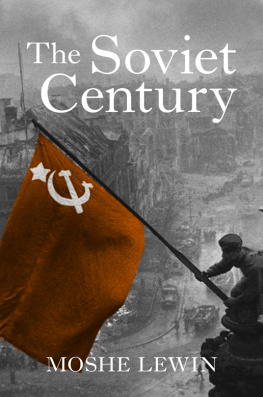
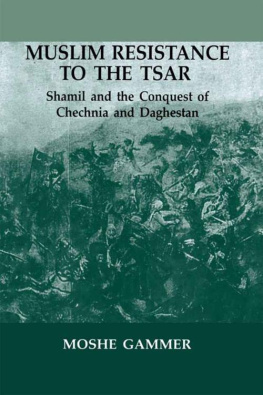
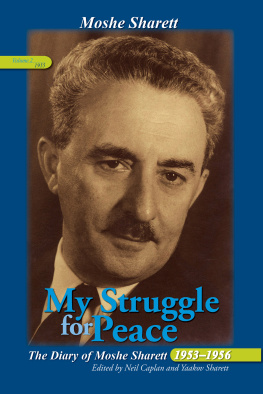

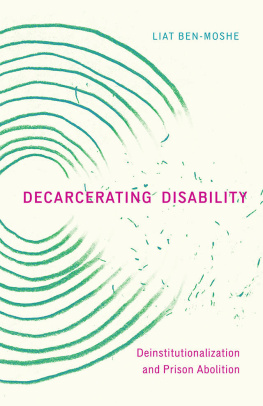


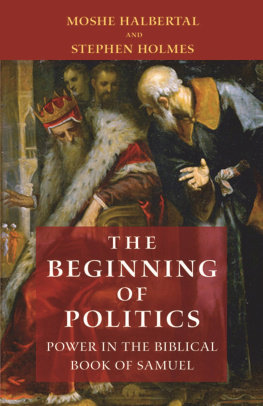


![Lewin - The other Ultra : [codes, ciphers and the defeat of Japan]](/uploads/posts/book/93695/thumbs/lewin-the-other-ultra-codes-ciphers-and-the.jpg)
